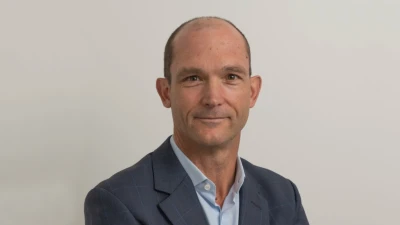No slowdown in private market spin-outs expected yet



Commentators may be forecasting industry consolidation in private markets but a survey of the industry expects new manager formation will outpace this.
Research by private market secondaries firm Coller Capital questioned 110 private capital investors across the world for its Global Private Capital Barometer. Investors surveyed had an aggregate minimum of US$1.9 trillion in assets under management.
While Money Management covered last week how private market managers are expected to consolidate in the coming years, this survey instead expected new managers to increase further rather than slow down especially in Asia-Pacific (APAC).
Some 38 per cent of limited partners (LPs) globally said they expect new manager formation to outpace wider industry consolidation over the next three to five years, rising to 64 per cent in APAC.
Just over a third (36 per cent) said they had already witnessed an increasing number of spin-out firms – those where one or more employees have left to set up their own firm - within the last three years.
These new firms are likely to be set up by high performers within established investment teams with Coller Capital noting new firms are typically focused on specialist strategies in underserved segments.
Motivations to leave their existing firms included generational transitions and LP demand for differentiated strategies but, more negatively, could also be prompted by poor talent retention strategies as one in four LPs said firms were struggling to nurture their home-grown talent.
This was most common in APAC firms, the report found, which ties into the greater number of spin-out firms being launched in the region.
Another factor in favour of smaller new managers is respondents said they were concerned about the large volume of assets being held by established firms. For mega-funds with more than US$20 billion, LPs were sceptical about their capabilities in achieving target returns.
“More than half of LPs believe that they represent more of an opportunity from an access to managers and portfolio construction perspective. However, with regards to performance LPs are sceptical about this trend: over 70 per cent see this as a challenge for them in meeting their performance expectations.
“This suggests LPs believe returns will be affected as mega-fund managers may struggle to source investments and/or actively manage them.”
Speaking at the ASX Financial Adviser Day last week, Lee Hayes, head of distribution at MA Financial, and Nick Kelly, portfolio manager at Wilson Asset Management, said they believed there were too many private market players in the industry currently.
Hayes said: “There has been an explosion in the number of managers popping up. I have no doubt we will see consolidation in this space. There’s an opportunity because banks are withdrawing, but we are not a huge market, and it’s costly to run a business like this if you are employing the right type of people.
“Private equity went through the same period. Pre-GFC there were 50–60 groups, and this went down to about a dozen and they are the high-quality ones. We will see the same rationalisation in private credit, and the ones that are left will have that workout experience and be stronger for it,” added Kelly.
This is echoed by research houses who have previously expressed doubts about the experience and ability of the newer fund managers who lack an established track record.
Challenges for small firms
But separate research by index provider MSCI in its General Partner Survey identified it may not always be the easiest path for these spin-out firms to grow further. For small firms with less than US$5 billion, the top challenges to growth were managing expectations and reporting requirements followed by fundraising and capital flows.
MSCI said small firms would feel any pain of fundraising "more acutely" than their larger peers as their fundraising challenges begin earlier in the process with securing access to LPs and addressing LP's concerns around a first-time fund. In contrast, large ones have fewer problems with identifying LPs but have to work to retain and maintain these existing relationships by successfully managing their expectations.
For small firms, fundraising challenges were caused by the challenging market environment, geopolitical issues or a competitive market.
"Investor capital is harder to come by — one in three GPs ranked fundraising and capital flows as their top challenge, and two-thirds placed it in their top five. With market conditions tightening and investor scrutiny sharpening, GPs must increase transparency and enhance their investor engagement infrastructure to remain
competitive," it said.
Small firms setting up on their own also needed to be prepared for demanding clients who seek greater visibility of their investments than ever before with transparency seen as a key criteria influencing their decisions and investors requesting detailed, granular reports.
For small firms, who the earlier Coller Capital noted are more likely to be operating in specialist strategies, over half reported difficulty in finding relevant and accurate data to share with their clients as their niche strategies did not always align with aggregated market data and 43 per cent struggled to select an appropriate benchmark.
"With a tighter fundraising environment come new demands. LPs are now evaluating and monitoring the performance of GPs more stringently, requiring transparent, customized and frequent reporting, regularly updated risk insight and relevant benchmarking. And not all GPs have adequate processes in place."
Other findings
The Coller Capital report also noted that as private markets firms target the retail and wholesale market in a move away from institutional investors only, 27 per cent said they expected to see collaborations with celebrities or sport stars in the next two to three years to boost brand recognition and this figure rose to 51 per cent of banks.
Despite concerns about ESG, especially in North America, most respondents felt it was no longer “just a compliance item” for them. Most respondents said it was a driver of upside financial value, as a risk mitigator and as a measure to protect financial value.
“The rankings suggest that most respondents believe ESG and sustainability is a proactive lever for value creation and reflects a growing confidence among GPs that strong ESG performance can create upside financial value and competitive advantage. While value creation was ranked highest, risk mitigation received the largest overall vote count, followed by financial value protection. This underscores how crucial investors believe ESG to be for both value preservation and creation.”
Recommended for you
Fund manager Pacific Current has appointed a former superannuation chief executive as its newest chair, succeeding Tony Robinson who departs after almost a decade to focus on his role at COG Financial.
The possibility of a private credit ETF is looking unlikely for now with US vehicles seeing limited uptake, according to commentators, but fixed income alternatives exist that can provide investors with a similar return.
Ahead of the approaching end of the financial year, State Street has shared five tips for advisers who are using ETFs in their client portfolios.
BT has appointed global fund manager Wellington Management to launch the Global Opportunistic Value Fund for Australian financial advisers.















